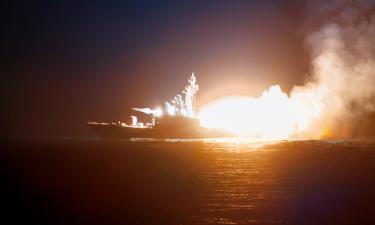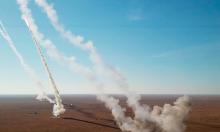Great Britain says Iran nuclear issue must be resolved through peaceful stress
Britain's foreign secretary said Monday that Iran is already paying a price for the harder line taken under President Mahmoud Ahmadinejad, and he called for peaceful pressure to resolve a standoff over Iran's nuclear weapons program.

"The truth is that the result of Iran putting itself beyond the pale of the international community has been a serious damage to investor confidence," Straw said in an interview on British Broadcasting Corp. radio.
"The Iranian Stock Exchange, which is actually quite busy normally, has declined significantly. There has been a flight of capital out of the country. And even more worryingly for the regime, the brightest and the best continue to leave the country in large numbers," Straw said.
"We want to see a normalization of relations with this country, and it is still not too late for the Iranians to get back into negotiations with us," Straw added.
He repeated his position that military force is not an option to solve the dispute.
"This is an issue that has to be resolved yes, by pressure but by peaceful and democratic means," Straw said.
He noted that Iran had signed up to the Nuclear Nonproliferation Treaty, unlike Pakistan , India and Israel "each of which have nuclear weapons, and we want them to end their nuclear weapons reliance."
London backs calls for the entire Middle East, including Israel, to become a region free of weapons of mass destruction. Britain has long said it wants Israel to sign the treaty and submit to international inspections as a non-nuclear weapon state.
However, Straw has said that worries about Iran's nuclear program must be resolved before Britain can press Israel to give up its arms, because of the danger Iran poses.
"If we are going to get to a situation where we can effectively say to the Israelis, 'Sign the nuclear proliferation treaty, become a non-nuclear weapon state,' then we have to remove the very profound risks which that country faces to its very existence from Iran," Straw said in testimony before House of Commons committee last month.
He cited Ahmadinejad's threat to wipe Israel "off the map," saying Israel had never threatened Iran's existence.
The Jewish state is widely believed to have a nuclear arsenal but has always refused to confirm such suspicions.
"I can't imagine any circumstance in which Israel would surrender its nuclear weapons," said Malcolm Grimston, a nuclear policy expert at London's Chatham House think tank.
The International Atomic Energy Agency last week sent the dispute over Iran's nuclear program to the U.N. Security Council, which could impose political and economic sanctions. Iranian officials, however, have been adamant about pursuing what they see as their right to develop a nuclear program.
"We are not afraid of the Security Council. What is important for us is defending our legitimate rights. Iran is a powerful country and is able to defend its interests," Iranian Foreign Ministry spokesman Hamid Reza Asefi said on Sunday.
Straw was speaking later Monday to the International Institute for Strategic Studies on the British view of Iran, which he says is heading in the "wrong direction."
"We will not take sides in Iran's internal political debates, those are for the Iranians to resolve," Straw says in excerpts from an early draft of the speech released by the Foreign Office.
"But this does not mean that we should stop standing up for the principles of human rights and fundamental freedoms which we hold dear to ourselves and which so many Iranians aspire to," Straw's speech said.
"Our message is that we want the Iranian people to enjoy the benefits of civil nuclear power and we support their aspirations for a freer, more democratic and prosperous Iran ", reports the AP.
D.M.
Subscribe to Pravda.Ru Telegram channel, Facebook, RSS!




